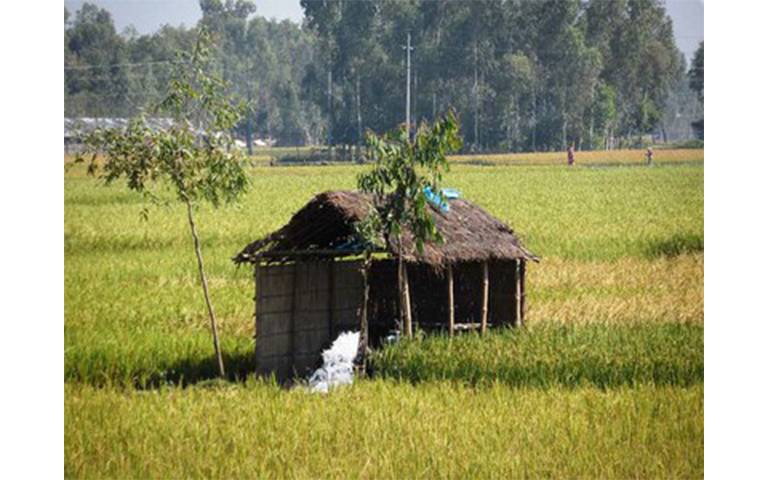The resilience of groundwater resources to global change
27 August 2020
Rainfall extremes provide key to localised water storage

Fewer of the world’s large aquifers are undergoing depletion than previously estimated, according to a new study by Dr Mohammad Shamsudduha, formerly of UCL Geography, now an Assistant Professor at the University of Sussex, and Professor Richard Taylor (UCL Geography).
The study, in Earth System Dynamics, also reveals that replenishment of groundwater storage depends upon the type of extreme rainfall that is increasingly occurring under conditions of climate change.
Richard explains:
"The findings do not deny that groundwater depletion is occurring in many parts of the world but the scale of this depletion, frequently associated with irrigation in drylands, is more localised than past studies have suggested, and often occurs below a large (~100 000 km2) ‘footprint’ of mass changes tracked by a pair of GRACE (Gravity Recovery and Climate Experiment) satellites."
Groundwater, the world’s largest distributed store of freshwater, plays a critical role globally in supplying water for irrigation, drinking and industry, and sustaining vital ecosystems.
Previous global studies of changes in groundwater storage, estimated from GRACE data and global models, indicate that intensified human water withdrawals from most of the world’s large aquifer systems are depleting groundwater resources.
This new study, however, accounts for strong seasonality in groundwater storage, showing that only 5 of the world’s 37 large aquifers are undergoing depletion requiring improved management and governance.
For most, drylands storage trends exhibit considerable variability in volume over time and are especially influenced positively and episodically by years of extreme (>90th percentile) precipitation.
In the Great Artesian Basin of Australia, for example, extreme seasonal rainfall over two successive summers in 2010 and 2011 increased groundwater storage there by ~90 km3, which is more than ten times the annual freshwater withdrawals in the UK. Elsewhere, in the Canning Basin of Australia, however, groundwater depletion is occurring at a rate of 4.4 km3 each year, associated with its use in the extraction of iron ore.
Mohammad concludes:
“"The new analysis provides a benchmark, alongside conventional, ground-based monitoring of groundwater levels, to assess changes in water storage in aquifers over time. Such information is essential to inform sustainable management of groundwater resources."
 Close
Close

